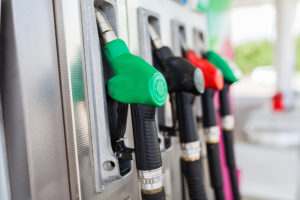Does “Bad Fuel” Exist?

There’s nothing quite as frustrating as when your company vehicle has trouble starting. You likely have a long trip ahead of you, only to be stalled by sputtering, sluggish performance, and the engine light coming on.
If the engine pings and sputters even after being turned off, you may think “bad fuel” is to blame. The bad news is that there is such a thing as bad fuel that can make its way into your tank. Fortunately, knowing the source of bad fuel and protecting your vehicles with fuel card services can help you avoid unwanted engine troubles.
Here are a few reasons fuel can go bad.
Water or Sediment Containments
The ethanol in fuel attracts water molecules. A little water won’t hurt, but if storage or delivery issues introduce too much water, it could cause problems for the fuel.
Water and sediment runoff can contaminate underground holding tanks at fuel stations. If the fuel cap on your vehicle is worn-out or not tightened enough, it’ll get into the tank. If an underground tank becomes corroded and leaks, it will cause additional issues.
Luckily, filters at the pump typically catch larger sediment particles. However, it’s important to note that smaller particles and water can make their way into the tank, causing misfires.
Lack of Oversight
Sediment and water issues at the pump are a leading cause of bad fuel. The problem is that inspections for fuel quality at service stations aren’t federally mandated.
Most states test periodically for contaminants, but budget cuts have affected their efficiency. The Bureau of Weights and Measures has experienced staff cut backs in multiple states. Less employees means fewer on-site inspections, increasing the time between stations having their fuel tested.
Issues with Additives
Inadequate levels of dispersant-detergent additives are a leading cause of fuel problems. Additives are used to keep the intake valves, combustion chambers, and fuel injectors clean and efficient. They also clear away deposits made by varnish and carbon.
While fuel distributors are mandated to use the proper level of additives, studies show that around 85% of fuel in the U.S. has only a tenth of the recommended amount.
Less-than-honorable fuel suppliers will use less-effective additives, or reduce or eliminate them altogether. Low-quality additives work against your vehicle, accumulating on valve stems and making them sticky. They can also create issues in the combustion chamber by building up deposits.
Protect Your Vehicles
Fuel that has high-quality additives gives your vehicles the best protection from wear and tear. Fortunately, the Fuelz Fleet Card has nationwide acceptance at over 50,000 fueling stations. No matter where the road takes you, our services can help you manage expenses and save money.
Ready to save up to 15% on your fleet fueling costs? Contact Fuelz at 855-GO-FUELZ today.
